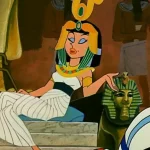The classic animated film ‘Pinocchio,’ set in Italy, was brought to life by Disney and released on February 7, 1940. This timeless tale features a captivating ensemble cast, including Dickie Jones as the voice of Pinocchio, Christian Rub as Geppetto, and Mel Blanc as Jiminy Cricket.
One of the most notorious characters in ‘Pinocchio’ is the Coachman, a figure who embodies deception and manipulation. In this blog post, we’ll explore nine dishonest qualities of the Coachman that viewers often overlook, providing a deeper understanding of his character and motivations.
1. The Coachman’s Deceptive Charm
The Coachman is a master of disguise when it comes to his charm. He uses his charisma to lure unsuspecting boys to Pleasure Island. As he states, “There’s no school, no rules. Just fun and games!” This enticing slogan masks his true intentions, making it easy to see through his facade if one looks closely enough.
2. Exploiting Vulnerable Children
One of the most dishonest qualities of the Coachman is his exploitation of vulnerable children. He preys on their desires for freedom and fun, promising them an escape from responsibility. This manipulation is especially dangerous, as he knows these boys are looking for adventure and excitement, ultimately leading them into a trap.
3. Hidden Agenda Behind Leisure
While the Coachman promotes leisure and enjoyment, his hidden agenda is far from benevolent. He seeks not only to attract children but also to profit from their mischief. Transitioning from a seemingly friendly guide to a cunning villain reveals the complexity of his character and the darker messages of ‘Pinocchio.’
4. The Illusion of Freedom
The Coachman presents Pleasure Island as a paradise where boys can indulge in their whims. However, this illusion of freedom is merely a ruse. It is crucial for viewers to recognize that what appears to be liberation is actually enslavement, as the boys soon discover they can’t escape and face dire consequences.
5. Ruthless Transformation of Innocence
Perhaps the most disturbing quality of the Coachman is his ruthlessness in transforming innocent children into donkeys. This process symbolizes how easily innocence can be corrupted by the allure of immediate gratification. He embodies the harsh reality that bad influences can strip away one’s purity, making his character a cautionary figure in the narrative.
6. Manipulation of Parental Authority
The Coachman also undermines parental authority by enticing children away from their families. He capitalizes on the boys’ rebellion against their parents, making them feel like they are finally free. This manipulation can lead to devastating consequences, showcasing his cunning nature and the inherent dangers of misplaced trust.
7. Glorifying Vice over Virtue
In ‘Pinocchio,’ the Coachman glorifies vices like greed, selfishness, and hedonism. He encourages the young boys to think that indulging in these behaviors is acceptable, representing a moral decline. As Pinocchio learns, these choices come with significant repercussions, and the Coachman’s influence is a stark reminder of the value of virtue.
8. The Coachman’s Ruthless Nature
The Coachman is not just deceptive; he is also ruthless in his pursuit of success. He doesn’t hesitate to transform the boys into donkeys and sell them if it benefits him. This trait reveals a dark aspect of his personality, showing that he is willing to sacrifice others for his gain.
9. Consequences of Ignoring His Warnings
Ignoring the dishonesty of the Coachman leads to severe consequences for the boys he entices. As they succumb to his temptations, they face a grim fate that serves as a cautionary tale about the dangers of deceit in various forms. Understanding his character reminds us that every action has consequences, particularly when influenced by dishonest figures.
The Coachman in ‘Pinocchio’ serves as a complex and multifaceted villain, representing the darker side of temptation and manipulation. While his charming facade may tempt viewers to overlook his dishonest qualities, it is essential to recognize his true nature. By understanding the nine qualities discussed above, audiences can appreciate the lessons hidden within this timeless tale and the importance of integrity and virtue in life.
In today’s world, where distractions and temptations easily lead us astray, the story of ‘Pinocchio’ provides a powerful reminder of why we must remain vigilant against deceitful influences.











